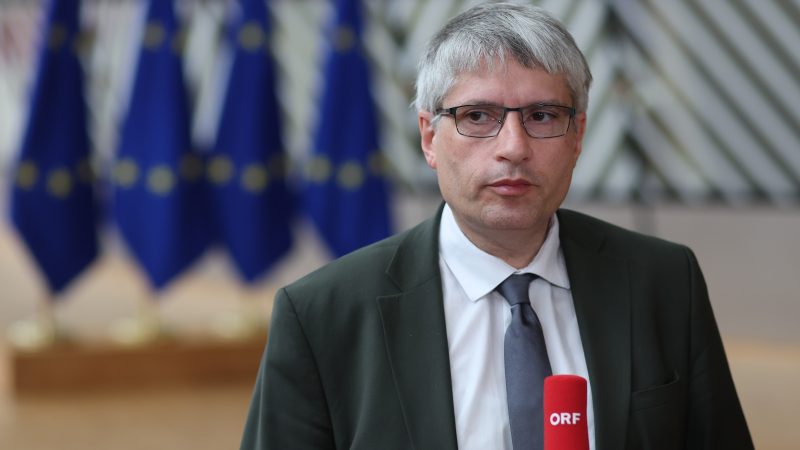Laying out key priorities for the EU’s upcoming Clean Industrial Deal, German Economy State Secretary Sven Giegold said on Monday (30 September) he wants the Commission to prioritise renewable energy, taking a tough line on nuclear power and France’s renewable targets.
Alongside a quicker roll-out of renewable energy facilitated by “further exemptions from [environmental impact] assessments,” Giegold outlined several other German priorities for the EU’s upcoming strategy.
Based on the 2030 renewable energy targets, the EU should also set up a 2040 framework, complemented by new, more ambitious targets for energy efficiency, he said.
“It should include new heating standards, a heat pump action plan and a renovation initiative,” he explained, noting a heat pump action plan was last shelved in 2023.
Hydrogen, made from renewables, should be governed by a “a pragmatic framework,” the German politician stressed, reiterating calls from his boss, Economy Minister Robert Habeck (Greens), to delay strict production rules into the late 2030s.



Additional interesting stats, especially regarding statement on the safety of nuclear energy and waste:
IAEA-database of nuclear and radiological incidents
Note that although the list which is linked above gives an impression of the spread, diversity and frequency of incidents and accidents with nuclear power plants radioactive transports, it is not a complete list of all nuclear incidents and accidents; different national regulators have different regimes as to which incidents to report to the IAEA and which not.
One article on nuclear energy in the UK from May 2024 says:
[Edit typo.]